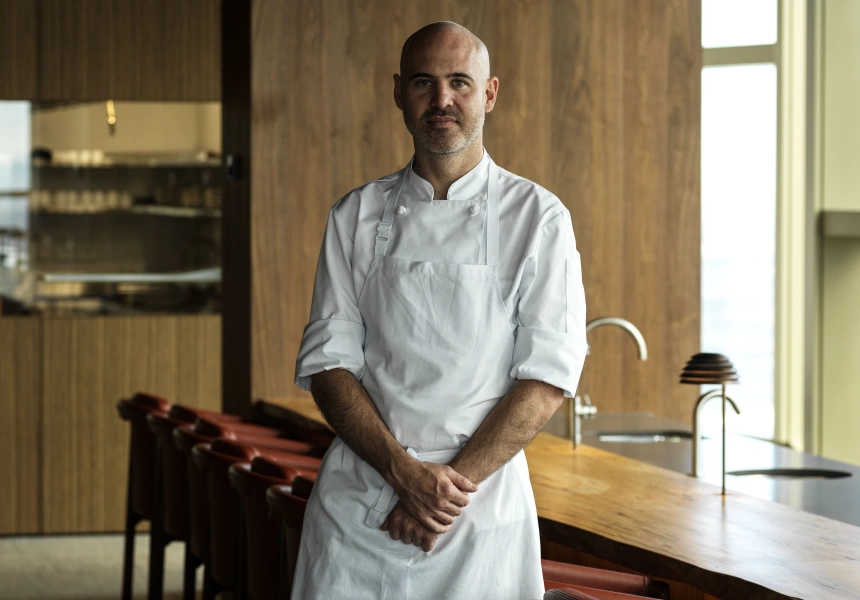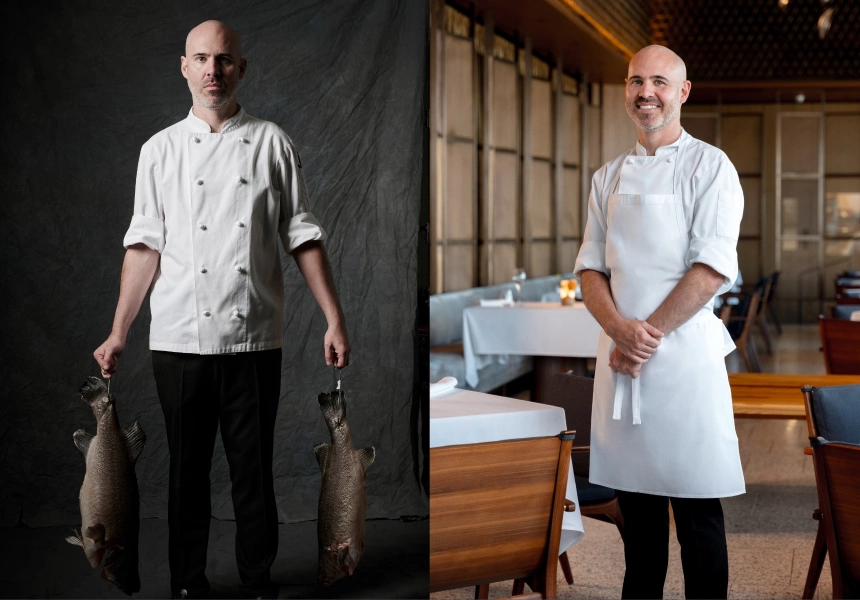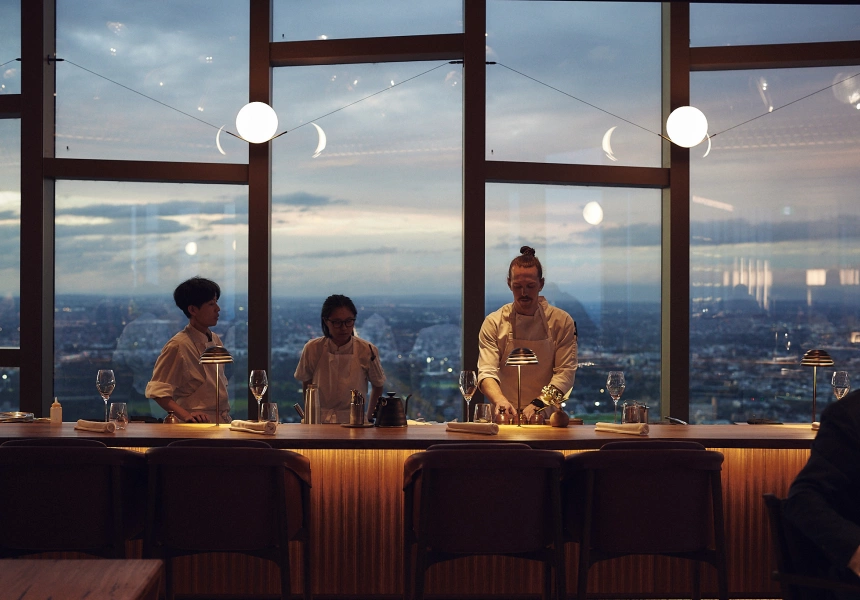Michael Greenlaw’s love of the ocean runs deep. Growing up, the Ritz-Carlton’s executive chef was always in water – swimming, snorkelling, fishing and free diving.
“I was always mucking around in swimming lessons, never really paying attention but always trying to hold my breath swimming as many laps as I could,” says Greenlaw, who leads the team at the swanky hotel’s sky-high fine diner Atria and adjoining cocktail bar Cameo. “I loved snorkelling and then I worked out I was a really good free diver. It sort of naturally led to spearfishing.”
These days he spends time free diving and spearfishing in Port Phillip Bay, out to which he’s gazing from Cameo’s 80th-floor windows when Broadsheet calls.
Never miss a Melbourne moment. Make sure you're subscribed to our newsletter today.
SUBSCRIBE NOW“We’re just working on a new abalone and sea urchin dish and I’m looking out at Altona and Williamstown,” says Greenlaw, who was previously at Melbourne’s Westin for five years. “They hand-dive all the short-spined sea urchins there in Altona, and it’s a really nice treat that we can bring the guests around and show them where they dive for it.
“That sea urchin is a pest,” he continues. “It eats all the seaweed and kelp – I do a lot of diving in that area and it’s barren – so having that dish on the menu is not only helpful for Port Phillip Bay, but it’s a really delicious addition.”
Victoria’s fishing licence laws prevent Greenlaw from serving his own catch to diners (besides the scallop, abalone and oyster shells he’s collected, which have been turned into Atria crockery by Cone 11 Ceramics), but he works closely with fishers to get his hands on some of the lesser known species he spies out in the water.
“There’s something like 43 edible species in Port Phillip Bay and surrounds, and you’ll go to the market and see snapper and flathead and whiting. We’ve had lots of discussions with fishermen and worked out that they do catch these items, but they either end up as bycatch or animal feed or fertiliser.”
That includes grass whiting and yellow-eye mullet, which have shown up in Atria’s Victorian Crudo, served with white soy, fresh wasabi, sea grapes and pickled shiso. The evolving entree – a simple, delicious show of Greenlaw’s intentions – might preface venison tartare with smoked bone marrow and blackberry; wood-roasted bay lobster served over squid-ink spaghetti; plump corn tortellini filled with baby corn and Long Paddock ironbark cheese; or dry-aged Macedon Ranges duck with daikon and shiso. “We take inspiration from the 360-degree view. We can point to Mount Macedon where our ducks are currently from.”
His menu is seasonal, naturally, but not the quarterly seasons most of us are accustomed to. Instead, Atria follows the Kulin Nation’s seven-season calendar. “There’s a lot of restrictions with restaurants sticking to those four European seasons that aren’t relevant in Melbourne,” Greenlaw says. “So now we change our menu once every week or two weeks. When we get the call from our suppliers saying, ‘Hey this is available and it’s at its peak’, we grab a lot of it, create a dish, and whatever’s left over we preserve. We’ll dehydrate it, pickle it, ferment it.”
Using the trim and reducing waste is essential to Greenlaw, whose chefs also make a sourdough miso from leftover crusts, which is then folded through the butter served with their bread. They’re also air-drying and lightly smoking fish frames for use in glazes and finishing sauces, and looking at distilling their own oyster shell gin later this year.
“Whether it’s land or sea or flora or fauna,” Greenlaw says, “we assist our producers to use unique produce that takes pressure off commercial farming, harvesters and the local fisheries.”
This article first appeared in Domain Review, in partnership with Broadsheet.



